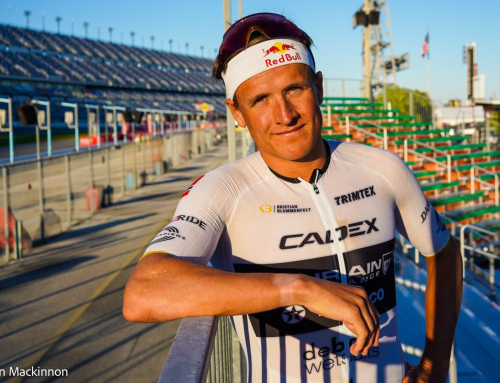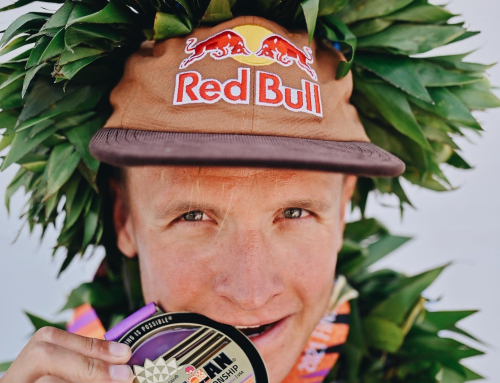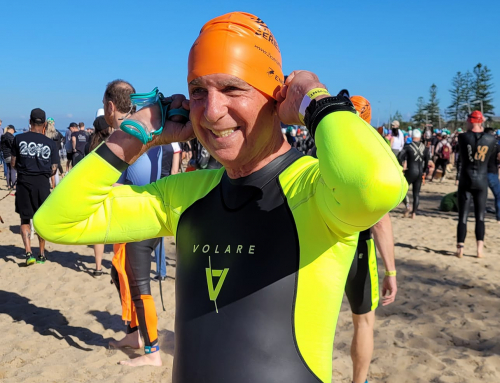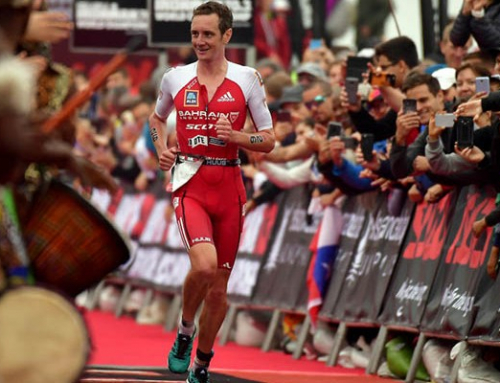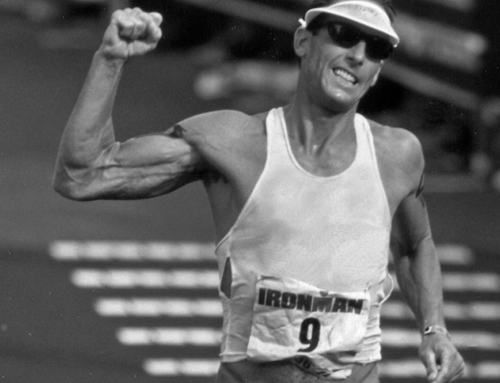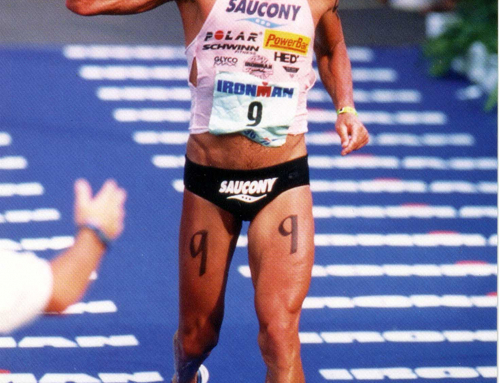Ironman is a big life challenge and it is not for everyone. Don’t do one if you are not prepared. It is just not worth it, even if it is to boast to friends and family or to get the IM tattoo on the calf. Your heart is a muscle and like any other muscle, it has micro tears during intense & long exercise. A muscle well trained will heal quicker and will be stronger.
It is medically proven that we are going through mini heart attacks while doing an IM, even the fittest! So if you are not fit at all, have a two year plan before doing one, if you are fit but at sprint distance level, have a one year plan and if you are OD or 70.3 fit and train at least 2 hours per day, then have a 6 months plan to the big IM day. It is better in any case to start early and build slowly with a full time job. You might not have the time for those big blocks of training or training camps, so better focus on regularity.
Start your IM prep early and train 60min per day during the week and 3h per day on week-end and you will finish and enjoy it. This will allow you not to rush in your training, do a step by step preparation and make your own luck as you prepare yourself to limit the chance of injury. In any case, I would not recommend planning the training on your own. See a qualified and experienced IM coach and do some squad sessions with his crew or it might get very lonely and boring out there. You will also need the technical support to allow you to become more efficient and have fewer injuries!
- Know yourself and your capabilities. There’s no quicker way to bring your race down than to try performing at a level that is beyond what all indications beforehand suggest are beyond your capabilities. Great tactics involve NOT pushing to your limits – and racing at all-time below your threshold. Good racing is based on knowing what your capabilities are and how far / hard / fast / etc. you can go. Tactics involve knowing whether you are able to change your pace, by how much, for how long – should the need arise – compared to a sensible base pace. Pacing tactics make or break races.
- Know the course. The course is a fixed aspect of the race, so it pays to knows the geography in advance to not only train appropriately, but also to plan your tactics and strategy for each part of it, for example, the most appropriate way of climb the hills depending on length and incline. Knowing the course also implies consideration for the length, since tactics for an Olympic Distance triathlon are vastly different to those for an Ironman. Also, knowing the course can also mean being familiar with prevailing weather conditions, including heat/cold, winds, road conditions, water conditions and more…
- Know your competition. While not necessarily applicable for everyone, for those who are racing for a placing it is due diligence to know who your competition is and their relative strengths and weaknesses…as much as you can. This helps to know how to – or whether to – respond to their performance during a race (within your capabilities, of course!). You should never race based on your competitors. Stick to your plan, game and pacing. Accelerating your pace to try and keep up is fine as long as you do not compromise the rest or the back end of your race. Also, as Macca points out, knowing your competition also means knowing their mental game, and whether you can influence that.
- Expect the unexpected. Race tactics really only represent an idealistic plan assuming everything else is going according to script. However there are countless uncontrollable variables that affect your race, and turn your tactics on their head. That is why any plan must have be able to be changed on the fly, whether the fall-back is plan B, C, Z or one you’d never considered, which is where experience from training and racing comes into play. The one thing you do want to avoid is being too reactive to events around you, otherwise you have lost control of your race. Be ready for a good race and expect ups and downs as an ironman is a long journey of mixed feeling and emotions. Stay in control when you have a bad patch, do not accelerate, hydrate, eat if needed and wait for the good patch to come back. It is not over until it’s over!
- Manage risks. In conjunction with expecting the unexpected, you need to manage the risks associated with any race tactics you employ against the benefit it might bring towards the eventual race outcome. Put into practice, the risk of going too hard too early will surely bring you undone later on…as will surging too hard mid-race. However, you might decide the effort to bridge a gap to group is worth it for the benefit of the group dynamic. You need to decide these things as you go, based on knowing yourself, the course, competition, etc.
So bringing all these things together – plus a host of others – allows you to plan optimum race tactics in advance, and be prepared for a range of scenarios to occur and be confident in your choice. Each race scenario you find yourself in is also an opportunity to learn more about how your body actually responds so that you might be able to better optimise race tactics in the future. Race tactics are something you never completely master – but practice sure does help – and is why sporting competition is always intriguing because no two events are ever the same…
The week leading into a big race is all about recovering, sleeping more, stretching, hydrating, getting a massage & getting looked after. But my advice is always & will always be:
- don’t obsess over the race
- don’t overanalyze things
- don’t get in last minute training
- don’t try new things
- The way you feel does not mean a thing the week leading into the race
- Relax, have fun and unplug
- If it is your first IM, just go for the experience and to finish
- Learn from each races and move forward to the next one
- Don’t get caught walking too much, sightseeing too much and doing too much of the expo before your race. Do this after the race!
This works for me, so I’m going to say it…stay away from triathlon related things, tri expo, tri pasta party and mainly triathletes. This/they will drain you physically and mentally. Relax at home or by the pool with a book or a good movie. Enough said…



